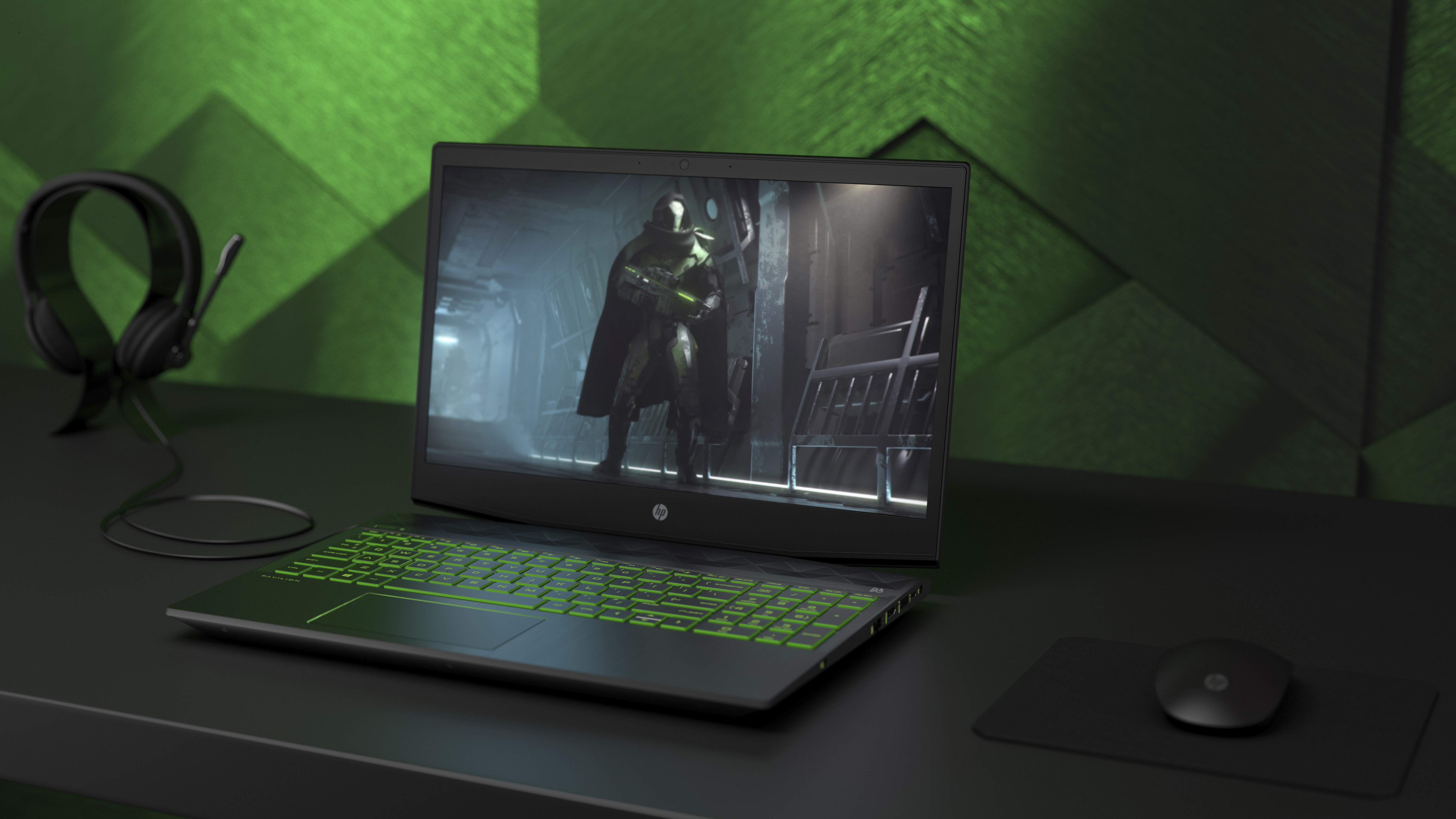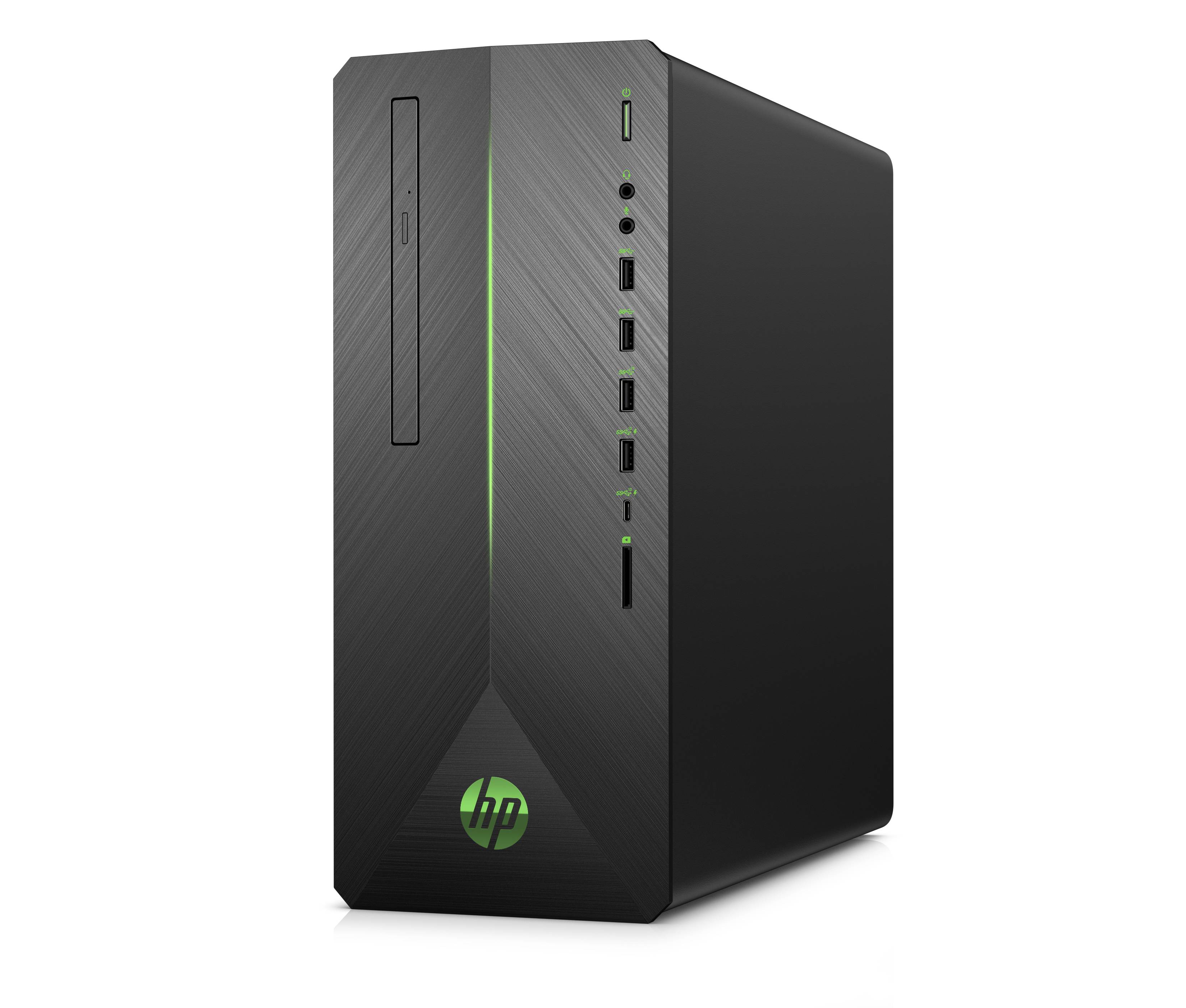HP Pavilion Gaming Laptop and desktops double down on accessible PC gaming
Plus, a (pricey) HP Pavilion Gaming Display to go with either

Sign up for breaking news, reviews, opinion, top tech deals, and more.
You are now subscribed
Your newsletter sign-up was successful
As it turns out, PC gaming has grown to be mighty profitable for PC makers, the latest of which to double down on widening that audience being none other than HP. The firm has announced three new Pavilion Gaming products aimed toward more mainstream or first-time PC gamers.
These three new devices consist of a gaming laptop, two variants of a gaming PC and an HDR gaming monitor. First up is the HP Pavilion Gaming Laptop 15, an obviously 15-inch gaming notebook decked out in perhaps a bit more gamer-centric design than we’d expect, with either ‘Acid Green,’ ‘Ghost White’ or ‘Ultraviolet’ accents atop a matte black chassis.
Beyond that, this laptop will house Intel’s latest, Coffee Lake H-series hexa-core processors – starting with i5 and up to i7 – backed by Nvidia’s GeForce GTX 1050 Ti graphics chip. From there, you have a choice between 8GB of DDR4 (2,666Hz) memory or 16GB of Intel’s latest Optane Memory, as well as either 1TB of spinning storage (with the Optane model) or a 128GB SSD-plus-1TB hard drive combo.
All of this sits behind a Full HD (1,920 x 1,080) display with tiny bezels and in-plane switching (IPS) for wider viewing angles. HP promises up to 8 hours and 45 minutes of mixed usage on a charge from this laptop, which will start at $799 (about £569, AU$1,029) when it launches on May 27.

Desktop PC gaming on the cheap – well, almost
In the same announcement, HP also unveiled the simply named HP Pavilion Gaming Desktop 690 and 790. Both of these computers come in largely identical, green-on-black cases, but are awfully different on the inside.
For instance, the 690 model is an all-AMD device, sporting an AMD Ryzen 3 2200G processor and AMD Radeon RX 550 graphics card. Meanwhile, the 790 version is an Intel-and-Nvidia affair, with an 8th-generation Intel Core i5-8400 processor and Nvidia’s GeForce GTX 1060 graphics card.
From there, both models sport 8GB of DDR4 (2,666Hz) memory and gobs of USB ports (including one USB-C each), though storage options differ. The 690 model comes with a 7,200 rpm 1TB hard drive, while the 790 simply has a 256GB SSD to start. However, we’re told that several storage and memory configurations will be available.
Sign up for breaking news, reviews, opinion, top tech deals, and more.
The HP Pavilion Gaming Desktop 690 will be available for $549 (about £389, AU$709) to start on April 15, while the 790 model will launch on April 30 for $649 (about £459, AU$839) to start.
Finally, and where HP’s push for affordable PC gaming begins to fall apart, the firm has announced a massive, 32-inch gaming monitor with HDR for better color reproduction. It’s called simply (again) the HP Pavilion Gaming 32 HDR Display, and shines at 600 nits brightness as well as supports AMD Radeon FreeSync technology for reducing screen tearing.
The monitor pumps out a QHD (2,560 x 1,440) resolution that, frankly, the other products HP has announced will have trouble fulfilling with their low-end graphics cards. Here’s the kicker: the Pavilion Gaming 32 HDR Display will call for $449 (about £319, AU$579) when it lands on May 11.
Frankly, this monitor costs just 100 bucks less than HP’s most affordable gaming desktop – whereas you can find just-fine 1080p gaming monitors for hundreds less. By this logic, this product should drop the ‘Pavilion’ name and adopt HP's high-end gaming ‘Omen’ moniker.
At any rate, the booming popularity of PC gaming all the more apparent now that HP has followed Dell and other brands in doubling down on efforts to widen that audience. In the end, that can only be good for all of us – i.e. more newbies to mop the floor with.
- These are the best PC games we’ve played in recent memory

Joe Osborne is the Senior Technology Editor at Insider Inc. His role is to leads the technology coverage team for the Business Insider Shopping team, facilitating expert reviews, comprehensive buying guides, snap deals news and more. Previously, Joe was TechRadar's US computing editor, leading reviews of everything from gaming PCs to internal components and accessories. In his spare time, Joe is a renowned Dungeons and Dragons dungeon master – and arguably the nicest man in tech.